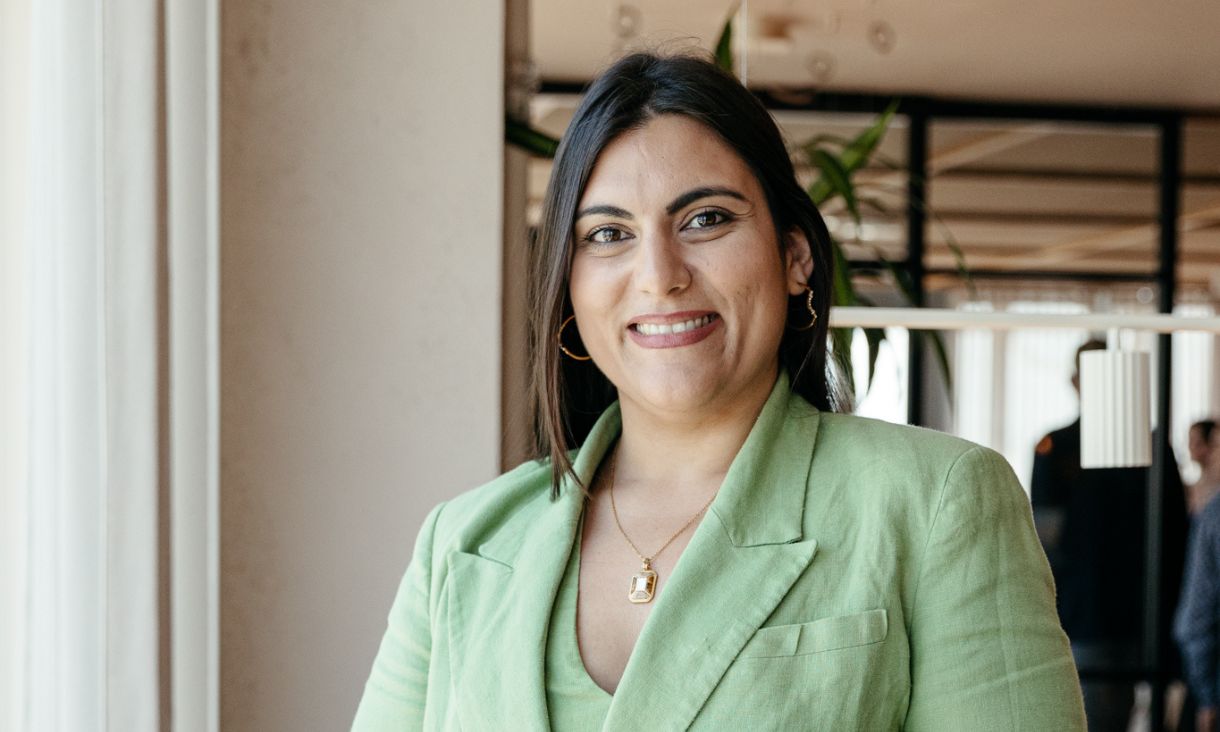Meet Lianne Cassar – Nominated by Local Councils’ Association Malta

The beautiful Mediterranean island of Malta may be popular with tourists, but its dense population and small land area create substantial transportation challenges for residents.
– Lianne Cassar
Striving for sustainable mobility
High car dependency and limited space lead to residents in Malta feeling frustrated with traffic congestion and not enough infrastructure for public transport. To tackle this, the Local Councils’ Association Malta is doing its utmost to prioritise urban mobility, but they are hampered by a lack of resources and other challenges typical for small island states.
Because of this, Lianne Cassar is a very busy person. She serves as the Executive Secretary for the Local Councils’ Association Malta. She also holds the roles of Deputy Executive Secretary for the Port Region as well as one of the local councils.
In her role for the Local Councils’ Association, Lianne manages administration, HR, finance and daily operations while giving support to all 68 local councils and six regional councils in Malta. Alongside the elected executive committee, she oversees project implementation and issues guidelines, helping to unify local and regional councils.
Lianne, who has been with the association for seven years, is finalising a master’s thesis in Governance and Management and holds an Advance Diploma in Insurance and a Certificate of Higher Education in Sociology and Maltese Language from the University of Malta. She has been involved in the restructuring process and the rebranding of the Local Councils’ Association Malta.
Future focus
The association is currently working towards its five-year vision, focusing on four pillars: sustainable mobility, open spaces, urban greening and smart cities. The 2019 vision resulted in guidelines for sustainable mobility, including walking accessibility and shared transport. In addition to this work, Lianne also engages in EU-funded projects and represents her association in international forums like the Commonwealth Local Government Forum, ALDA and CEMR highlighting Malta’s active role in global discussions despite being a small island nation with limited human resources.
Surprised but honoured to be selected for the EIT Urban Mobility Emerging Leaders program, Lianne aims to use this opportunity to network, learn from technical experts, and apply these insights vertically to support local councils.
“I’m really looking forward to taking part in the program because leadership in this type of role is intrinsic. We cannot influence the councils if we are not providing them with the right guidance and support. It’s my dream to try to replicate this program at a local level, " she said.
She feels this is especially necessary in light of the upcoming local elections where for the first time, 16-year-olds can now be elected as mayors. Lianne believes that the leadership skills gained from the program should be passed on to support any young leaders who may be elected for public office.
Lianne also feels the skills she acquires from the program can be used to improve communication and support for local government officials, as there is a lot of diversity in councillors’ backgrounds as well as many difficulties in implementing changes in the local government environment.
“For example, if you want to make space for a bike lane it can be very challenging to convince the mayor that this is the right way to move forward, because the residents are likely to blame the mayor for removing parking. So, we are always getting stuck in that cycle, and being small and everyone knowing each other makes it more difficult. In that regard, we need more leadership skills to help us be more persuasive and strengthen our negotiation skills further," she said.
Urban mobility initatives
Despite Malta’s unique challenges as an island, the local councils, supported by the association, are making strides in urban mobility. Initiatives like closing piazzas to traffic and prioritising pedestrian areas demonstrate a commitment to creating more liveable urban spaces.
“We also need to tackle what’s known as ‘last mile’ transportation. People still tend to get into their cars for what would be just a ten or fifteen minute walk, and this is sometimes the most challenging part for the Maltese islands because people need to be convinced to start behaving differently," she said.
Malta’s Slow Streets project, which emerged post-COVID-19, aims to reclaim streets for pedestrians by implementing bike lanes, play areas and accessible pavements. However, financing remains a huge challenge, as local councils are constrained by limited government allocations.
Lianne hopes to explore new funding models and opportunities through the EIT program to support these initiatives and encourage residents to adopt more sustainable transport habits.

EIT Urban Mobility Emerging Leaders
Launched in 2024, the EIT Urban Mobility Emerging Leaders program is transforming the leadership landscape. Submit an Expression of Interest for your organisation to join EIT Urban Mobility Emerging Leaders 2024. For any queries, please get in touch emerging.leaders@rmit.edu.au.